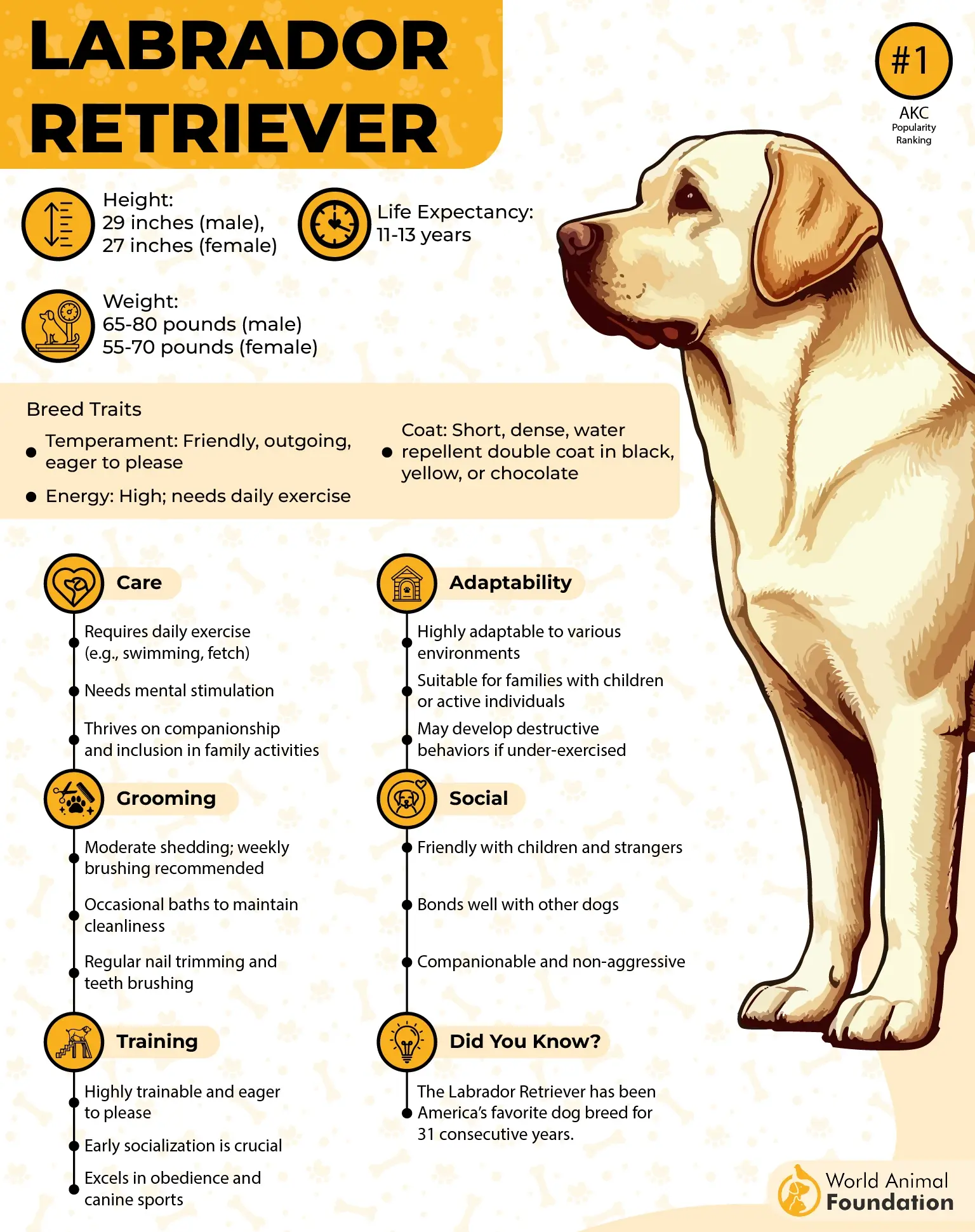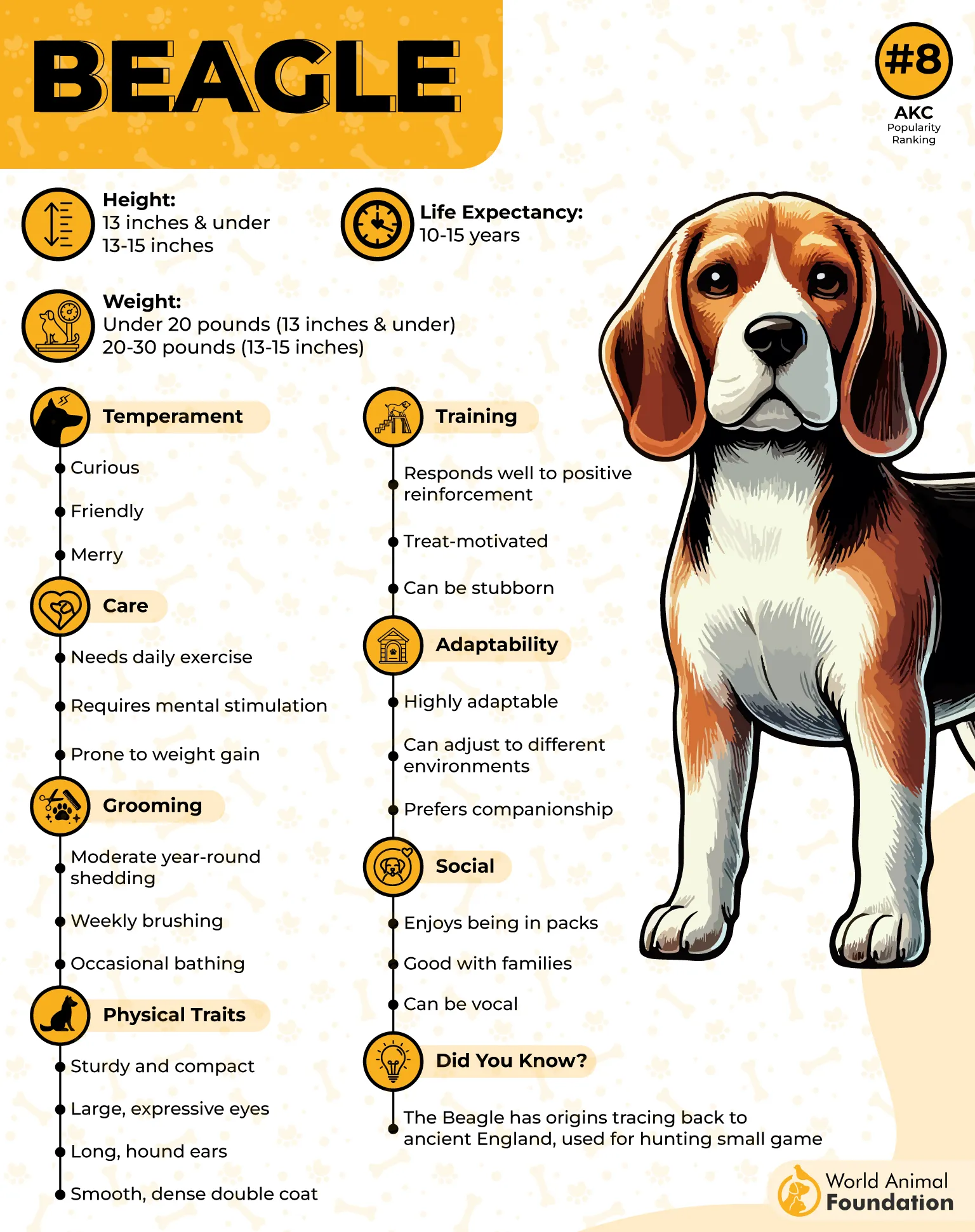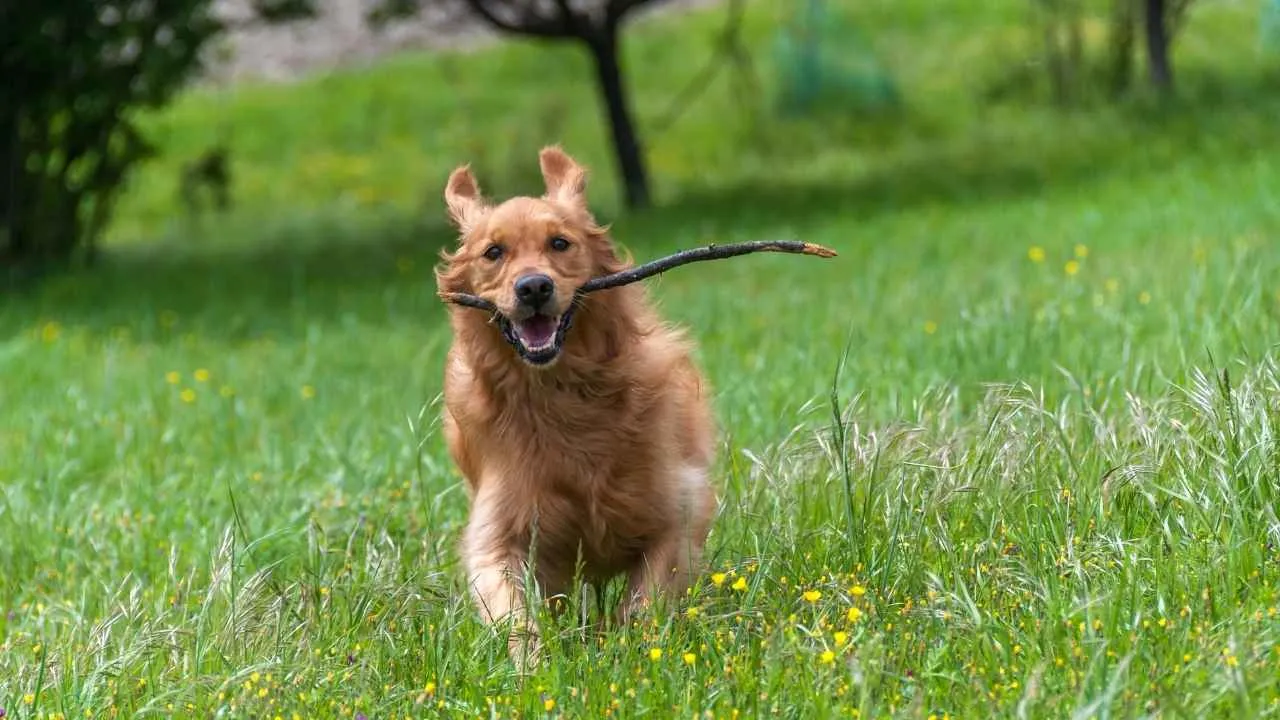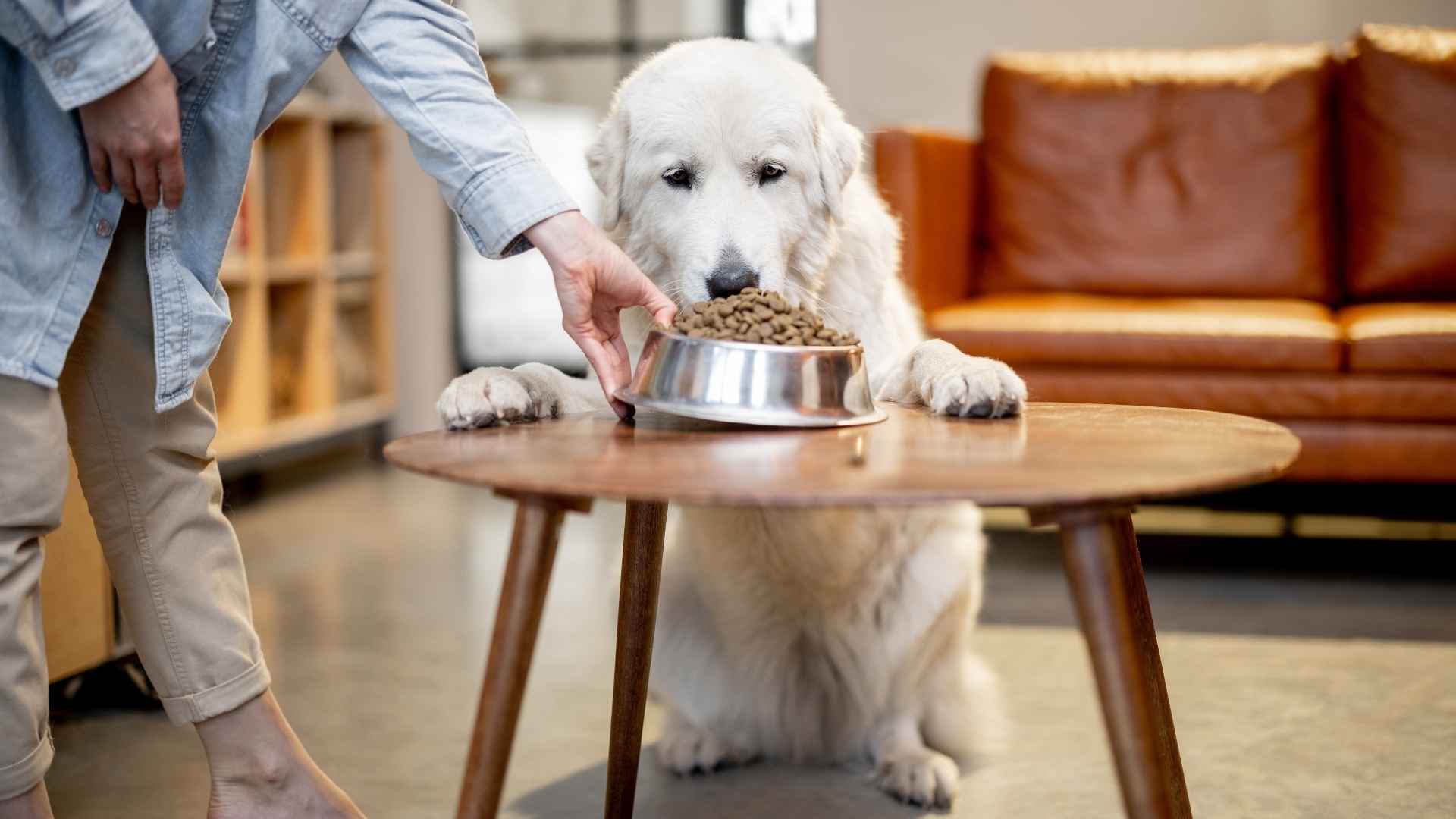Food has an almost magical power over dogs, turning even the most stubborn pups into eager learners and obedient companions. If you’re a dog owner, you’ve probably seen firsthand how a simple treat can light up your dog’s face and spark their enthusiasm. Some breeds, however, have a particularly strong food drive, and that love for snacks can be your secret weapon when it comes to training.
Whether you’re trying to teach your dog a new trick or simply reinforce good behavior, food can make all the difference. Food-motivated dogs can learn faster and retain training better than those less driven by treats.
In this article, we will dive into the breeds that are known for their love of food, helping you understand why these pups are so motivated and how to use their love for treats to enhance your training experience.
Did you know?
Food-motivated dogs are often faster learners and more responsive to positive reinforcement, making them ideal candidates for effective training!
Food-Motivated Dog Breeds
1. Labrador Retriever

Labrador Retrievers are known for their friendly and outgoing nature, making them one of the most beloved breeds worldwide. Their intelligence and eagerness to please make them highly trainable, excelling in various roles such as family pets, service dogs, and working companions.
Labs are quick learners and respond well to positive reinforcement, especially when food rewards are involved, which contributes to their reputation as one of the easiest breeds to train.

These dogs are energetic and require regular exercise to stay healthy and happy. Whether it’s playing fetch, swimming, or going for long walks, Labradors thrive on physical activity and mental stimulation.
Their love for food can be harnessed in training, but owners should monitor their diet to prevent overeating. Their affectionate nature makes them fantastic companions for individuals and families alike, forming strong bonds with their owners.

Labradors are also known for their patience and adaptability, making them great with children and other pets. Their friendly demeanor ensures they get along well with new people and environments, which is why they are often chosen as therapy and assistance dogs.
2. Beagle

Beagles are renowned for their keen sense of smell, which makes them excellent tracking dogs and great companions for scent-based activities. As per Britannica, this breed is naturally curious, energetic, and eager to explore, which makes them fantastic pets for active families.
Beagles are also highly trainable, and they respond well to positive reinforcement, especially when treats are involved.

While food is often used as a motivator in training, it’s their eager-to-please nature that really shines. Beagles are enthusiastic learners, and their intelligence combined with their love for rewards means they’re excited to take on new challenges. This eagerness makes training sessions enjoyable for both the dog and the owner.
Beagles are also highly active, engage in playful behaviors, and thrive in interactive activities like scent-based games. Beyond training, their keen sense of smell and energetic personality make them excellent partners for a variety of fun, mentally stimulating tasks.
3. Golden Retriever

Golden Retrievers are famously friendly, loyal, and intelligent, making them one of the most beloved breeds for families. Known for their affectionate nature, they are always eager to form strong bonds with their owners and are naturally inclined to please.
Their trainability and willingness to engage with their humans make them ideal companions for both active families and those seeking a loyal and loving pet.

They are highly food-motivated, which makes them even easier to train. Their love for treats helps keep them focused during training sessions, encouraging them to learn new commands, tricks, and tasks quickly.
This food-driven behavior adds an extra layer of motivation, making them enthusiastic participants in training and eager to earn rewards for their efforts.
Beyond training, Golden Retrievers excel in roles that require intelligence and a strong bond with their human family, such as therapy or assistance dogs. While their food drive can be useful in these settings, it’s their affectionate nature and desire to please that truly make them adaptable and reliable in a variety of environments.
4. Bulldog
Bulldogs might not have the energetic bounce of some other breeds, but when it comes to food, they’re all in! They are notorious for their laid-back personalities, but their love for treats is undeniable. A simple snack can get them excited and engaged, making training sessions both fun and effective. Even though Bulldogs are calm, their love for food keeps them motivated.
Because of their easygoing nature, Bulldogs thrive on consistent and rewarding training routines. Food-based rewards are a great way to keep their attention, especially during sessions where they might otherwise lose focus.
Their patience and willingness to work for food make Bulldogs fantastic companions for owners who want to teach obedience in a relaxed, yet effective, way.
Despite their relaxed demeanor, Bulldogs are incredibly affectionate and loyal. Using food to encourage positive behavior allows owners to strengthen their bond with this lovable breed.
5. Pug
Purina states that Pugs are known for their charming personalities, playful nature, and love of food. These small dogs may be compact in size, but they have big appetites and an even bigger love for treats! Their food-driven behavior makes them highly trainable, as they eagerly perform tricks and commands when food is involved.
Training a Pug is best done through short, fun sessions that keep them engaged. Their intelligence and playful demeanor make them quick learners, especially when food rewards are incorporated.
Pugs are always excited to take on new challenges, and the promise of a tasty treat makes the learning experience enjoyable for both the dog and their owner.
Beyond training, Pugs form strong bonds with their families, and their love for food often becomes part of their expression of loyalty. Using food as a motivator not only reinforces positive behaviors but also deepens the connection between a Pug and their owner.
6. Boxer
Boxers are energetic, playful dogs with a big appetite for both fun and food. Their lively nature makes them ideal companions for active families, and their love of treats enhances their trainability. Boxers are highly food-motivated, which means that food rewards are an effective way to keep them engaged and focused during training sessions.
Training a Boxer is most successful when it combines physical activity with learning. Their high energy levels mean they thrive in environments that keep them moving, and food rewards provide the motivation they need to stay on task.
With their love for treats, Boxers are always eager to participate in training, making it easier to reinforce commands and teach new tricks.
Boxers also have a playful side, and food rewards can make training even more enjoyable. Whether you’re rewarding them after a game of fetch or a successfully executed command, food serves as the perfect motivator to keep their enthusiasm high and their bond with their owner strong.
7. Cocker Spaniel
Cocker Spaniels are affectionate, intelligent dogs with a strong desire to please their owners. Known for their soft, loving nature, they form close bonds with their families, making them excellent companions. Like many breeds, Cocker Spaniels are also highly motivated by food, which makes training both enjoyable and effective.
Training a Cocker Spaniel is particularly successful when food rewards are used. According to AKC, their intelligence and eagerness to learn make them enthusiastic participants in training sessions, and food helps keep them engaged and focused.
Using treats as a reward creates a positive learning environment, reinforcing desirable behaviors and encouraging continued progress.
Beyond training, food motivation also plays a role in everyday activities. Cocker Spaniels’ devotion to their owners can be strengthened through food-based rewards, fostering a deeper bond and promoting good behavior.
8. Dachshund
Dachshunds are small dogs with a big personality and an even bigger appetite for food and fun. Despite their independent and sometimes stubborn nature, they are highly food-driven, which makes them receptive to training when food is involved.
Whether you’re teaching them new commands or rewarding good behavior, food helps keep them engaged and motivated.
While Dachshunds may require a bit more patience due to their independent streak, food rewards are highly effective in keeping them focused. Their determination means they’ll work hard to earn a tasty treat, making food a valuable tool for successful training.
Though they may take their time, their love for food ensures they’re always ready to learn, at their own pace.
Dachshunds may be small in size, but their enthusiasm for food is anything but! Using food as a motivator not only encourages learning but also strengthens the bond between you and your Dachshund.
9. Basset Hound
PetMD states that Basset Hounds are calm, collected, and affectionate dogs known for their impressive sense of smell. While they may have a slower pace compared to some other breeds, their love for food makes them highly trainable.
Their food-driven nature ensures that training sessions are both enjoyable and effective, as they eagerly engage when treats are involved.
Their powerful sense of smell is one of their greatest assets, and food rewards can be used to keep them focused during scent-based tasks. Treats work well with Basset Hounds because they align with their natural instincts and their need for mental stimulation. Food can motivate them to stay engaged, making training sessions more productive and rewarding.
Even outside of formal training, a Basset Hound’s love for food can enhance their behavior and deepen the bond with their owner. Offering treats as rewards fosters positive habits and strengthens the connection between you and your dog, ensuring that every learning experience is a positive one.
Conclusion
Food-motivated dogs are not just easy to train—they are eager to please, loyal, and driven by the love of a tasty treat. The Cavalier King Charles Spaniel is a sweet and affectionate breed known for its love of food, often displaying a voracious appetite and those irresistible puppy dog eyes that can make any treat hard to resist.
Food-obsessed dog breeds often display a strong food obsession, eagerly eyeing their furry friend’s meals and even trying to steal their own food, which can lead to challenges in managing their diet compared to other dogs.
To maintain a healthy weight and prevent weight gain, pet owners must practice portion control and provide regular exercise to manage the dog’s diet effectively. Whether you’re working with a Labrador or a Basset Hound, food is a powerful tool that can create strong bonds and positive learning experiences.
Embrace the joy that food-based training brings, and see how it transforms your dog’s behavior. With patience, consistency, and a little snack, you can make training sessions fun and rewarding, leading to a lifelong partnership full of love and obedience.


